One of the things I love about being micro-famous for talking about One Direction conspiracies is that so many people sent me links to the stories about Louis Tomlinson’s tweet this week. For those of you blissfully unaware, Louis is a former 1D member who has been plagued for a decade now by conspiracists who think he’s secretly married to Harry Styles. This is despite outright denials from the pair, Tomlinson repeatedly (and currently) dating women and fathering a child with one. In the past, he has said:
“What’s tough is, I realised this some years ago, there is nothing I can say. There is nothing I can do to dispel the believers of that conspiracy.”
He added: “It does irritate me a little bit, you know? But it is just kind of the nature of the job, I suppose.”
But this week he apparently lost his patience (again), tweeting:
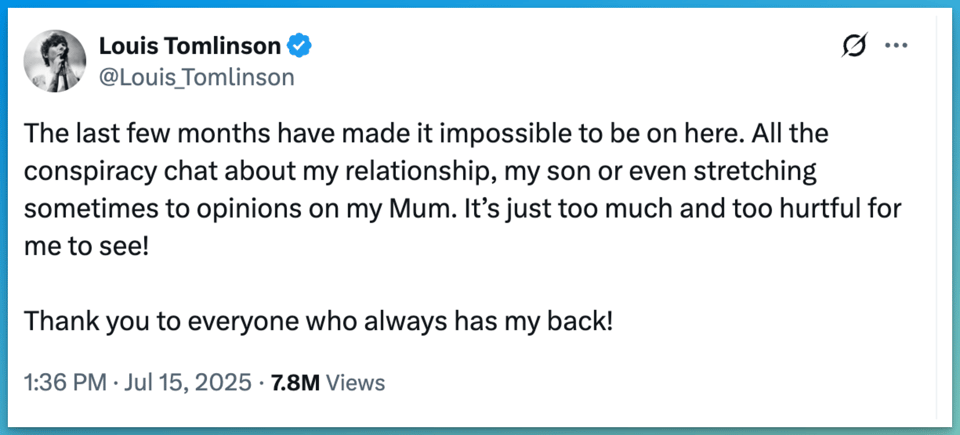
You’d think that fans of a celebrity who is this clear that their behaviour is unacceptable and hurtful would immediately cease and desist, but Larries have been at this for too long, and nothing will deter them now.
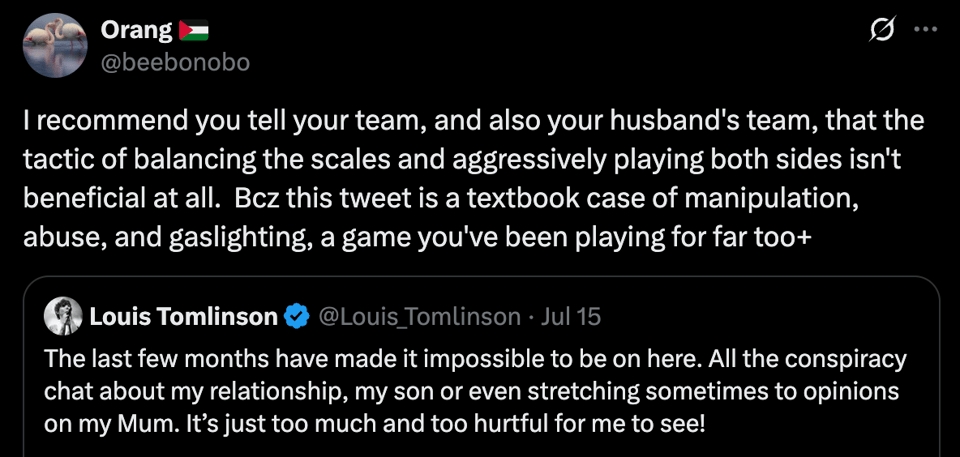
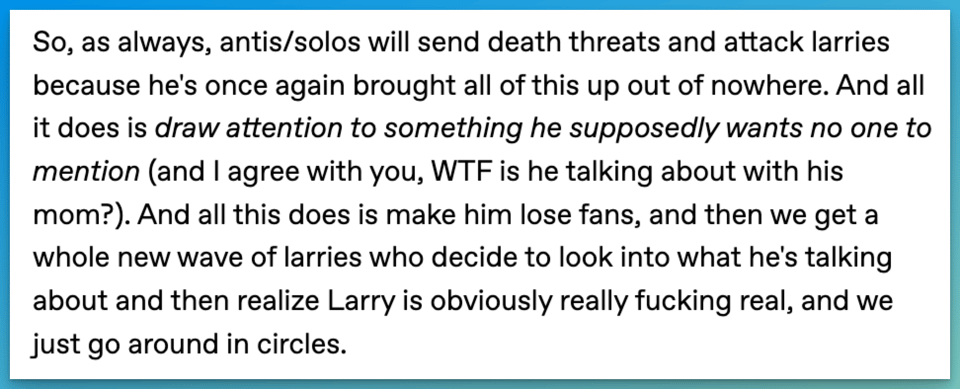
The cognitive dissonance here is hard to wrap your head around — until you look at the way MAGA has been reacting to the whole Epstein sitch. Or any cult. When you’ve invested this much time, and this much of your sense of self, in service of a set of beliefs that turn out not to be true, it’s hard to accept.
Anyway, all of this caused me to revisit Monia Ali’s piece from earlier this year about forensic fandom. This is an idea that was first coined in relation to media properties encouraging fans to dig in and solve puzzles or piece together clues (think Lost, back in the day, or Severance for a more current example — why are there goats?!). But Ali expanded this concept, talking about how 1D was one of the first fandoms to go on these kinds of treasure hunts about real people:
The joke in One Direction fandom was always that they were essentially FBI/CSI level investigators based on the things that they uncovered. I discussed some of this in my stalker fans post; how fans somehow gained access to security footage of the boys in airports and hotels, how commonplace hacking and flight tracking was, and how anyone who came into contact with the band became fair game for cyberstalking.
I’ve talked before about how participating in these easter egg hunts feels satisfying, even as it leads us to a path where we’re questioning everything. The intersection of this sort of behaviour — the desire to find answers, inside information, to be the one to track down the proof — with conspiracy theories creates a horrible perfect storm.
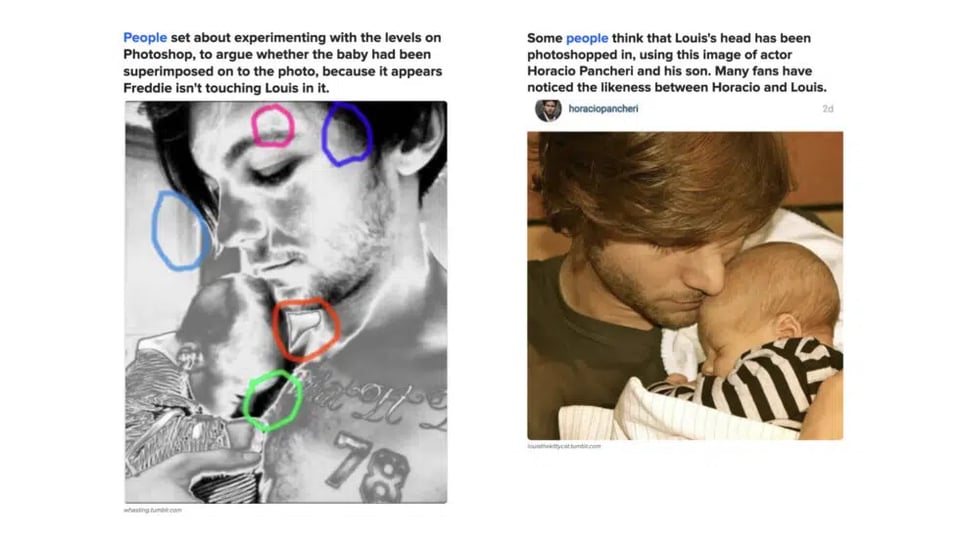
These “investigations” can seem amusing or trivial on the surface, like the legendary and deeply unhinged Lorde/Jack Antonoff Powerpoint, or The New York Times publishing a Gaylor essay. But I’m sure it doesn’t feel harmless to Outlander star Caitríona Balfe that fans called up the church where she was married because they didn’t believe her relationship was real.
It’s easy to think Tomlinson should ignore it, but I don’t know how I’d ignore people putting together a dossier like this about me.
As you dive into the different topics of this guide, please remember: H, L, their families, their friends, and all of us fans—including your fellow Larrie friends/moots—are real people. This is real life. TPWK. ♡
Treat people with kindness? The kind thing to do would be delete this and salt the earth.
Look, I’ll admit that for a joke I once calculated the height of my favourite hockey player using the height of a Ford F250 for context clues, and tagged it “#1d forensics raised me”.
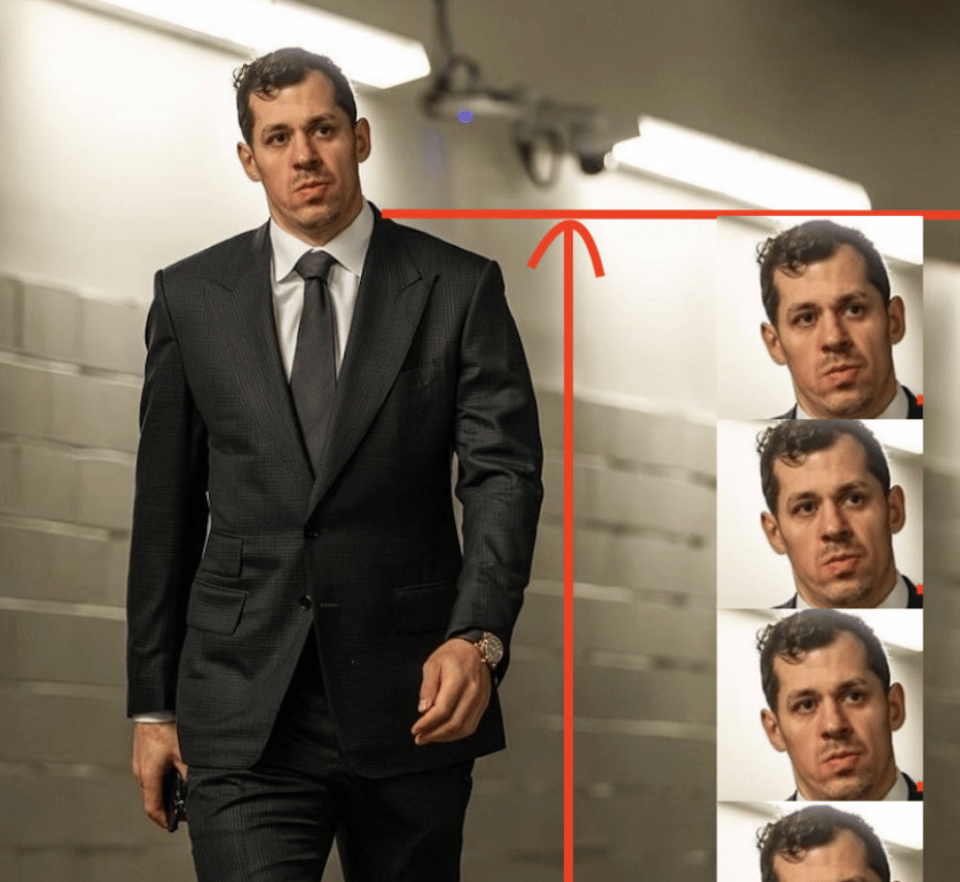
Ultimately, as this epic slide from Strange Æons says:

BUT I think it’s worth pausing here to talk about how we stem this tide, instead of just shrugging and giving up. I’m fandom’s biggest advocate, but not when it crosses lines that leave artists feeling trapped and scrutinised in ways that go far beyond curiosity. Can artists make and market an album without fans immediately dissecting lyrics to try and work out who the song might be about? How do we bring back the idea that music is ART and not a documentary or a deposition about an artist’s past relationships?
Similarly, can we promote films without leaning on manufactured romantic tension and relentless speculation about co-stars’ personal lives?
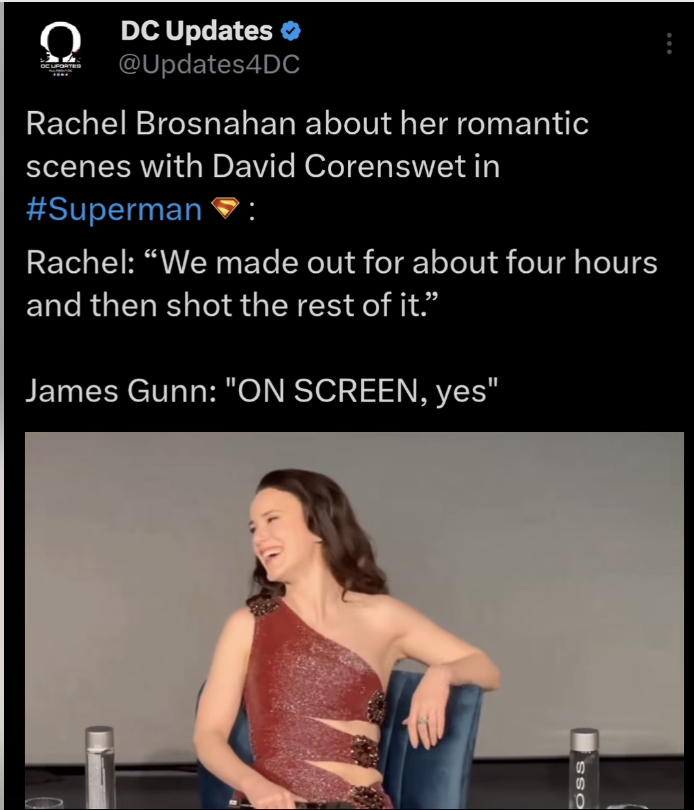
The entertainment industry and media often encourage and profit from these blurred boundaries, but as Louis Tomlinson’s frustration shows, these boundaries aren’t meaningless. When curiosity transforms into invasiveness, real people get hurt.
Next time you’re tempted to dive deep into speculation or tinhatting, consider channeling that energy into making something instead. Write a fanfic, make some art, or hang out with your friends and play your fave’s music without needing it to be personal or revealing.
I want to reclaim pop culture from the conspiracists! We should be able to enjoy stories without needing them to be secretly autobiographical. Fandom is supposed to elevate and celebrate creativity. It doesn’t need to keep demanding evidence in a never-ending investigation. Sometimes, the greatest pleasure comes from letting a song just be a song and a movie be a movie.
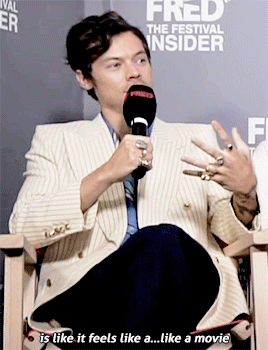
more good stuff
I signed up for the pro version of the Flighty app as I have far too many flights in my immediate future and was absolutely charmed when I imported my tripit history and discovered the data crunching Flighty does behind the scenes. Not only could it tell me that I’ve flown a climate-destroying 983,567km since 2008, but ALSO it can tell me that this morning I’m flying to Brisbane on a plane I’ve been on three times before. Ghost cars!

I keep thinking I will write something about Lively/Baldoni and the horrible repeating pattern we’re seeing, but Kat Tenbarge has done a flawless job so, read this instead.
A good post:
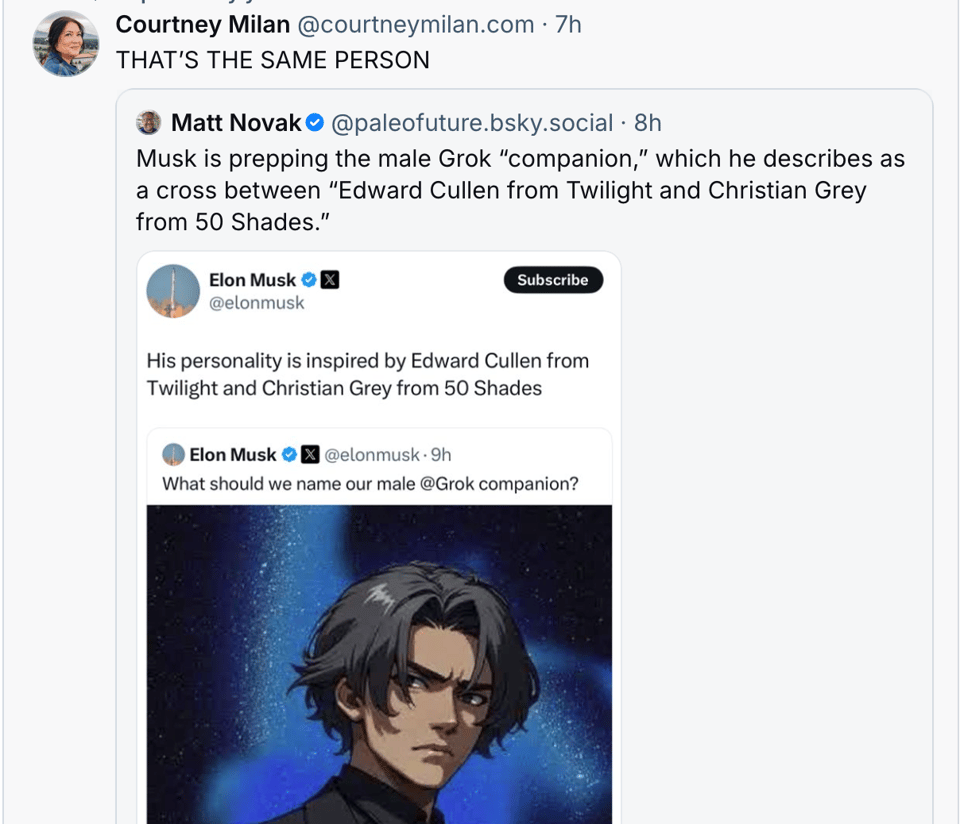
eyes and ears
Rob has been begging me for years to make him a podcast that consists of me explaining things to him, and (separately) telling him what to watch. I’m pretty sure that’s just a series of voicenotes, but I have agreed to add here what I’ve been watching and listening to that I’ve liked. This is an experiment. If you skip this section because it’s boring, please let me know. I feel like everyone tells you what to watch these days.
Ballard (Prime) — technically a spin-off of noirish LA detective series Bosch (based on books), it’s the same basic concept as the also excellent Dept. Q (Netflix) but without focusing on the bleak AF crime at the centre of the story the way Q does. Ballard is a homicide detective bumped down to cold cases with a scrappy team of misfits who turn out to be excellent at solving crimes. Solid procedural, satisfying twists and turns.
Mushroom Case Daily (wherever you get pods) — a podcast that updated daily through the trial of Erin Patterson, the Australian woman who has been found guilty of murdering three people by beef wellington. A great listen on the way through, and the pod is now answering questions that they couldn’t deal with while the jury was still empanelled.
Couples Therapy (Showtime) — If you’re not already obsessed with Dr Orna Guralnik, you have four seasons to catch up on. The trailer here gives you a taste.
finally, in my lego city

Forward this email to your favourite forensic investigator.
You just read issue #29 of what you love matters. You can also browse the full archives of this newsletter.

Add a comment: